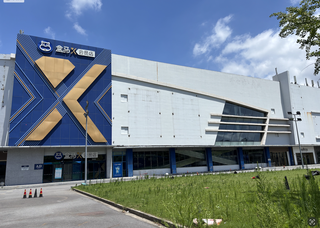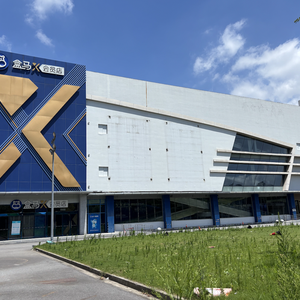by CHENG Lu
Alibaba-owned grocery chain Hema is exiting China's warehouse-style membership store market, shutting down all its Hema X Membership locations after years of strategic experimentation.
The company's final store in the format, located in Shanghai's Senlan Shopping Mall, will close at the end of August, following the July 31 closure of three other outlets in Beijing, Suzhou and Nanjing. Hema's customer service confirmed the Senlan store's closure to Jiemian News, adding that members can continue to order delivery online and retain benefits at nearby Fresh stores.
Hema has not officially commented on the closures. But according to former employees interviewed by Jiemian, the decision had long been anticipated internally. The X Membership format, launched in 2020, cost an estimated 50–60 million yuan per store—three to four times that of a typical Hema Fresh outlet. Despite rapid early expansion, the chain struggled to sustain the model.
"Since HOU Yi, the company's founder, retired, cutting X stores was one of the fastest ways for CEO YAN Xiaolei to control costs," a former staffer said, citing mounting external competition and internal inefficiencies.
After taking the helm in 2023, Yan, formerly Hema's CFO, shifted focus toward profitability and set a target of 100 billion yuan in GMV within three years. Under her leadership, Hema doubled down on its core formats—Fresh and Hema Neighborhood—while quietly abandoning the costlier membership store experiment.

At its peak in late 2023, Hema operated 10 X Membership stores in cities including Shanghai, Beijing and Nanjing. The format had been touted by then-CEO Hou as a challenger to Sam's Club and Costco, built on "local insights" and fast execution. But a combination of strategic volatility, weak non-food offerings, and a damaging fake cosmetics scandal eroded customer trust and growth momentum.
From November 2023 to January 2024, several suppliers were reported to have sold counterfeit cosmetics under brands like Estée Lauder and L'Oréal through Hema's platform, sparking a wave of consumer complaints and backlash. While details of any legal proceedings remain unclear, the incident dented customer trust during a critical period for Hema's membership business. Around the same time, Hema paused and later resumed its membership program, further confusing customers.
Despite recruiting talent from JD.com to build up home appliance categories, Hema struggled to match Sam's Club and Costco's decades-long supply chain expertise.
Still, the strategic retreat has coincided with a turnaround in Hema's core business. In the past year, its Fresh format opened 72 stores at a pace of one every five days, and plans nearly 100 more, with a focus on smaller cities. According to Alibaba's latest annual report, Hema surpassed 75 billion yuan in GMV for the 2025 fiscal year and recorded its first-ever full-year adjusted EBITA profit.
Hema is also poised to benefit from Alibaba's renewed push into instant retail. It now supports on-demand delivery for Taobao Flash Buy, alongside Ele.me. A new "super membership" program is expected to integrate benefits across Taobao, Ele.me, Fliggy and Hema, including an upgrade to the popular 88VIP tier.
"This will bring Hema a wave of high-quality members and potentially reignite its membership strategy—just in digital form," said retail consultant ZHUANG Shuai. "With Taobao's scale, this could be Hema's real breakthrough."
As Hema enters a new chapter focused on efficiency and digital growth, whether it can regain member trust online while maintaining profitability will be its next big test.





